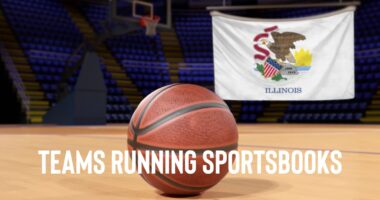Go directly to the content

If a bill proposed by 5th District Representative Lamont Robinson Jr. is approved, Illinois sports franchises could potentially be granted direct licensing for sportsbooks.
More precisely, HB5847 is an 11-page bill that removes intermediaries for sports franchises in Illinois, enabling them to directly seek a sports betting license from the Illinois Gaming Board.
Additionally, this would transform Soldier Field into a venue where legal bets could be placed on the Bears, with profits directly benefiting the team. The same would apply to the Cubs at Wrigley Field and the Bulls at the United Center.
Robinson explained in an email to Play Illinois that the bill aims to offer guidance for sports teams in Illinois seeking a sports wagering license. The clarification provided by the bill will help Illinois attract sports teams to participate in the profitable sports betting market, ultimately boosting the state’s sports betting handle, which currently ranks as the third largest in the country.
Illinois’ seven professional sports teams are limited to generating revenue through sponsorships with established sports betting companies. This is demonstrated by the agreement between the United Center and FanDuel to launch an in-person sports betting venue in 2025, as well as DraftKings securing a location at Wrigley Field for a planned opening next year.
What’s in this Illinois sportsbook bill?
Robinson’s bill permits the Illinois Gaming Board to grant seven master sports betting licenses. The teams eligible for these licenses include the Bears, Bulls, Blackhawks, Cubs, White Sox, Chicago Fire, and Chicago Sky. Each team is required to pay a $5 million licensing fee. The licenses are valid for four years initially, with the possibility of renewal.
Additionally, Robinson highlighted that his Illinois sports betting bill includes a provision for franchises with substantial minority ownership to receive a discount.
Robinson stated that the bill encourages teams with minority ownership to seek a license by offering a 50% discount on licensing fees, in line with the objectives of the original Sports Wagering Act.
The Democrat, who is 40 years old, proceeded to quote from the bill.
The Board will strive to promote diversity in race, ethnicity, and geographic location when granting master sports wagering licenses to organization licensees, in accordance with federal and state laws. Minority-owned businesses are encouraged to apply for licensure, aligning with the Board’s commitment to diversity.
There is speculation surrounding what occurs when two teams utilize the same home venue, such as the Bulls and Blackhawks sharing the United Center. However, Robinson’s bill clarifies that it would be the responsibility of the franchises to negotiate this arrangement amongst themselves.
Can this work in Illinois?
Arizona grants sports betting licenses to its professional sports teams, and Ohio plans to do the same once statewide sports wagering begins on Jan. 1.
Fans of sports betting should be excited about Robinson’s bill. With more sports wagering platforms in Illinois, there will be a wider variety of offers available. Additionally, bettors may benefit from improved odds as operators vie for a larger portion of the market.
Illinois has emerged as a major player in the sports betting industry in the United States, boasting a staggering $6.6 billion in sports betting handle through September 2022. This has resulted in over $536 million in revenue for the state, making it the second largest market in the country in terms of revenue. Additionally, Illinois ranks third in terms of handle, solidifying its position as a sports betting giant in America.
Robinson was optimistic that his bill would initiate a dialogue among his peers. The Illinois House of Representatives will reconvene on January 11th.
Robinson expressed the hope that by raising awareness of the issue, all parties involved can come together to discuss necessary changes to the application process.




